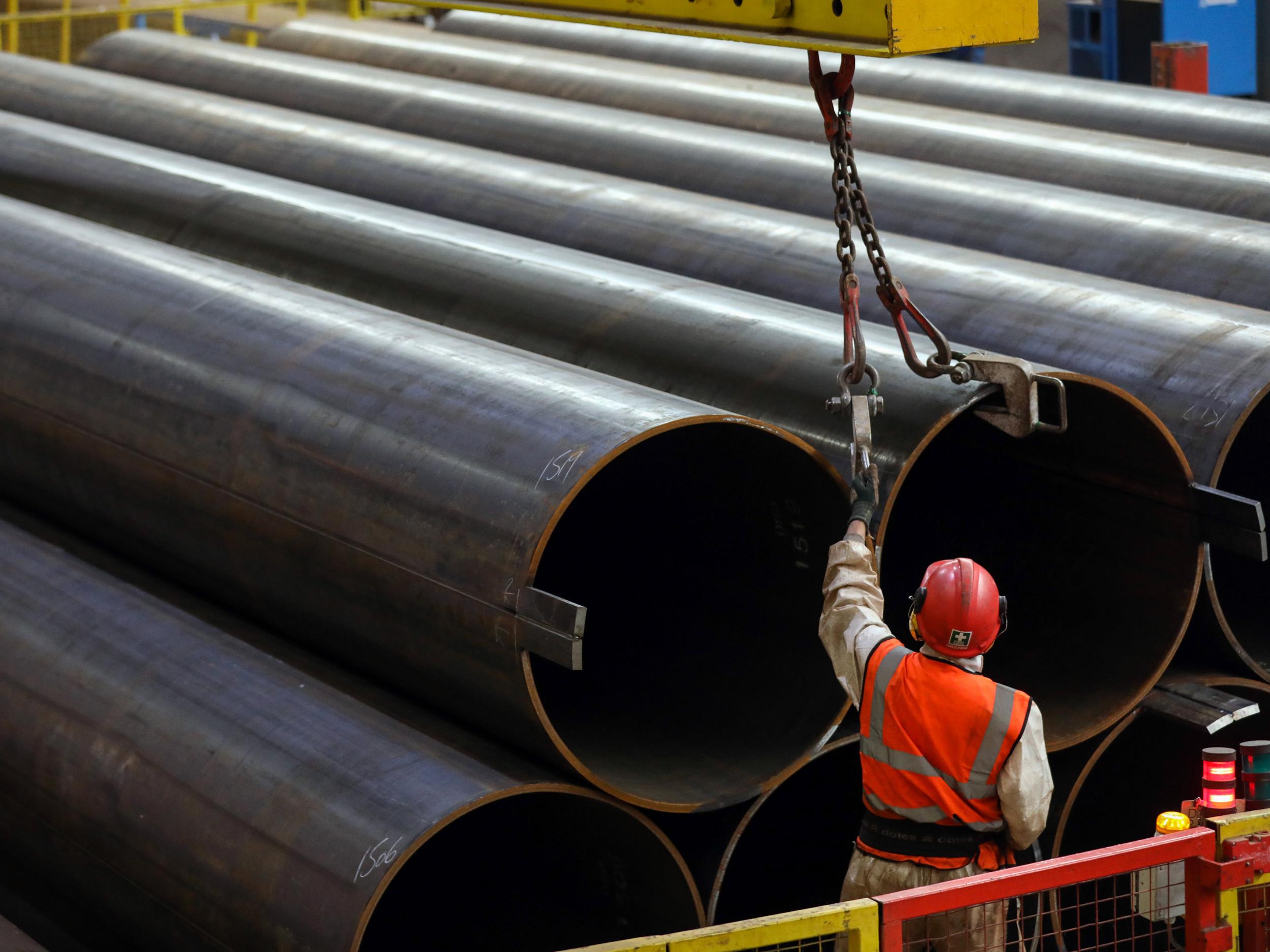Not allowing a vote on the Brexit deal would conflict with basic trade union principles – and that's why the Community union backs a Final Say
The deal Theresa May promised at the beginning of the negotiations is unachievable. Just as trade unions give workers a say in the workplace, the prime minister must now give the people of Britain a choice over their future

Your support helps us to tell the story
From reproductive rights to climate change to Big Tech, The Independent is on the ground when the story is developing. Whether it's investigating the financials of Elon Musk's pro-Trump PAC or producing our latest documentary, 'The A Word', which shines a light on the American women fighting for reproductive rights, we know how important it is to parse out the facts from the messaging.
At such a critical moment in US history, we need reporters on the ground. Your donation allows us to keep sending journalists to speak to both sides of the story.
The Independent is trusted by Americans across the entire political spectrum. And unlike many other quality news outlets, we choose not to lock Americans out of our reporting and analysis with paywalls. We believe quality journalism should be available to everyone, paid for by those who can afford it.
Your support makes all the difference.It was in a Wolverhampton steel mill, almost 40 years ago, that I first learnt to negotiate. Elected by my workmates to represent them and their interests, I still remember the first time I sat across the table from management, knowing that I was accountable to the crowd of angry steelworkers waiting just outside the door.
Since then, I have been around the world to negotiate with multimillion pound conglomerates on behalf of thousands of workers in different industries. But while the negotiating environment might have changed, the principles of my job have not. My members make it clear what they want, I go in to negotiate the best possible deal that I can, then I go back to my members and they will decide whether the deal I have negotiated is good enough. I have never shied away from saying so when I think the deal should be rejected, or when I think it is the best we can get, even if it is not perfect. Ultimately, however, it is not my decision. I am sent to do a job, but it is the people whose jobs are on the line that always make the final call.
In June 2016, the British public gave our government a mandate to go and negotiate a withdrawal from the European Union. Exactly what that looked like was unclear, but Theresa May told us she would go in and negotiate a deal that is in the best interests of British workers and their families. It now seems that such a deal is unachievable or may not exist. That is why my trade union, Community, is backing The Independent’s Final Say campaign, to secure a people’s vote on the final deal.
Many Community members work in the UK’s manufacturing sector, which sends half its exports into the EU. Any deal that makes this trade more difficult will surely see those exports decline. Meanwhile, the sluggish economy will hit sectors such as construction particularly hard, which in turn will hurt foundation industries such as steel. Those workers working in light manufacturing and consumer goods are also set to lose out, with estimates suggesting that textiles, clothing and footwear production will see the largest decline post-Brexit.
The slide towards a no-deal Brexit threatens jobs in the finance sector. Under such a scenario, businesses would lose their “passporting rights”, which allow them to sell their services across the EU without having to obtain licences in each individual country. Big firms in the UK’s logistics sector have been clear that they already expect significant disruption, regardless of what is achieved in the final deal.
At the same time, self-employed workers now see Brexit as the single biggest threat to the future of their business. While the direct impact of a bad Brexit will be more profound for some than others, Community’s members and their families will all feel the effect in some way, with estimates suggesting that by June 2017, Brexit was already costing the average UK household over £404 a year.
Just like in workplace negotiations, we can only face the facts and choices before us today. Those facts are profoundly different to those presented in 2016. The promise of £350m a week for the NHS has been shown to be worthless. The guarantee that our trading relationship with the EU would not be harmed was at best a mistake, and at worst a deliberate lie.
Brexit seems universally regarded as the most complex, challenging political issue of our age. Yet the simplest of trade union principles would genuinely let the people take back control. When Theresa May believes she has got the best outcome she can, then she must come back and allow us to decide if her best is good enough. If that outcome is rejected, then all options should be on the table, including reopening negotiations with Europe and retaining the status quo. Community would not shy away from asking our members to vote on important or difficult issues in the workplace; our politicians must do the right thing and give the people a final say on their future.
Roy Rickhuss is the general secretary of Community
Join our commenting forum
Join thought-provoking conversations, follow other Independent readers and see their replies
Comments